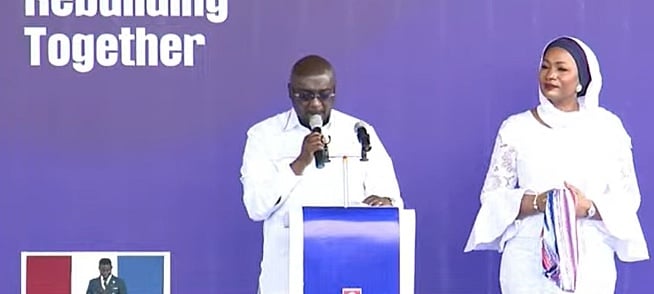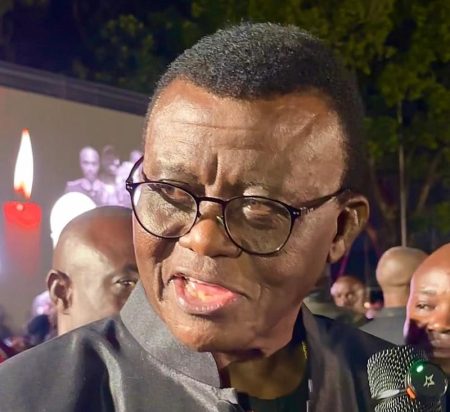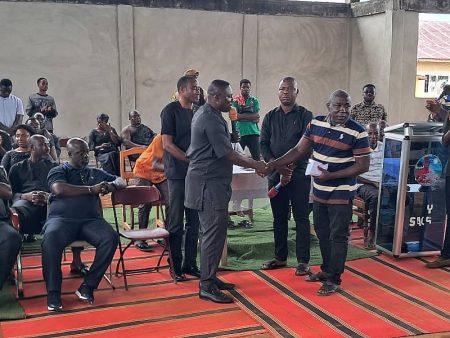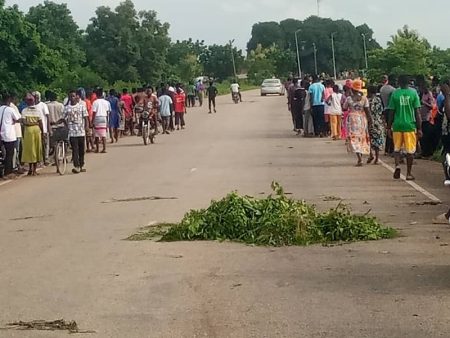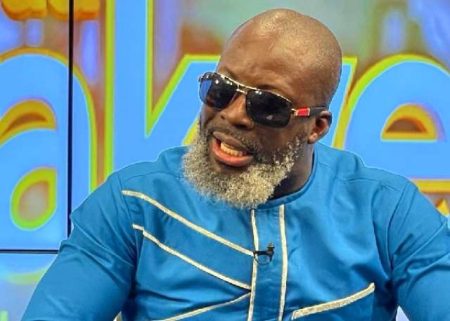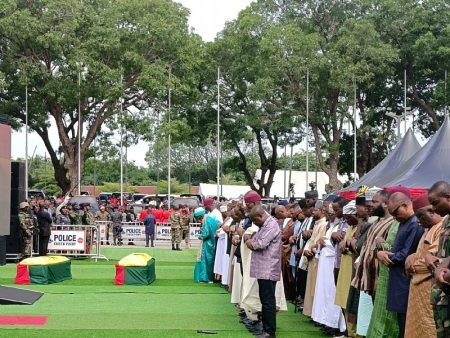The New Patriotic Party (NPP) convened a National Delegates Conference at the University of Ghana Sports Stadium on July 19, 2025, under the theme “Rebuilding Together with Our Values.” The conference served as a critical juncture for the party to introspect, address internal challenges, and initiate reforms following its defeat in the 2024 elections. Former Vice President Dr. Mahamudu Bawumia addressed the delegates, delivering a poignant message emphasizing the importance of internal discipline, unity, and a renewed focus on serving the nation’s interests. He urged the party leadership to enforce strict discipline and crack the whip on errant members to restore order and public trust. Dr. Bawumia’s call to action underscored the need for humility, learning from past mistakes, and prioritizing the common good of Ghana above all else.
Dr. Bawumia’s appeal for discipline was not simply a call for adherence to rules and regulations. It represented a broader plea for the party to regain its moral compass and uphold its core values. He highlighted the need for party members to conduct themselves with integrity and accountability, both within the party and in their public lives. This renewed emphasis on discipline, he argued, was crucial for rebuilding public confidence and demonstrating the party’s commitment to serving the nation. The former Vice President’s message resonated deeply with party loyalists who recognized the urgent need for change and a return to the founding principles that once defined the NPP.
The conference unfolded against a backdrop of internal divisions and soul-searching within the NPP. The party’s defeat in the previous election had exposed weaknesses and fueled discontent among its ranks. Dr. Bawumia’s call for unity was a direct challenge to the factionalism that had plagued the party and threatened its future prospects. He urged members to set aside personal ambitions and prioritize the collective goals of the party. This call for unity, however, was not simply a plea for harmony; it was also a demand for accountability. He insisted that party leaders must hold themselves and their members to the highest standards of conduct.
Central to Dr. Bawumia’s address was the theme of reform. The conference saw the consideration of numerous constitutional amendments aimed at overhauling the party’s structure and electoral processes. These reforms, he argued, were not merely cosmetic changes but essential steps towards creating a more democratic, transparent, and effective party. He urged delegates to approach the reform process with a sense of national purpose and to ensure that every decision made served the best interests of Ghana. The reforms under consideration represented an attempt to address the root causes of the party’s recent setbacks and to position it for a strong comeback in the 2028 elections.
Dr. Bawumia’s emphasis on putting Ghana first resonated strongly with many delegates. He reminded the party that its ultimate purpose was not to pursue power for its own sake but to serve the nation and improve the lives of its citizens. He urged the party to reconnect with the ordinary Ghanaian and to demonstrate a genuine commitment to addressing their concerns. This renewed focus on national interest, he argued, was essential for regaining public trust and earning the mandate to govern. His message emphasized the inextricable link between the party’s success and the well-being of the nation.
The National Delegates Conference served as a critical turning point for the NPP. Dr. Bawumia’s powerful message, which emphasized discipline, unity, and a renewed focus on national interest, captured the prevailing sentiment within the party. The conference marked the beginning of a process of introspection and reform, as the party sought to rebuild itself and regain its position as a leading force in Ghanaian politics. The challenge ahead was to translate the words spoken at the conference into concrete actions and to demonstrate a genuine commitment to change. The success of this endeavor would determine not only the future of the NPP but also the direction of Ghanaian politics in the years to come.





